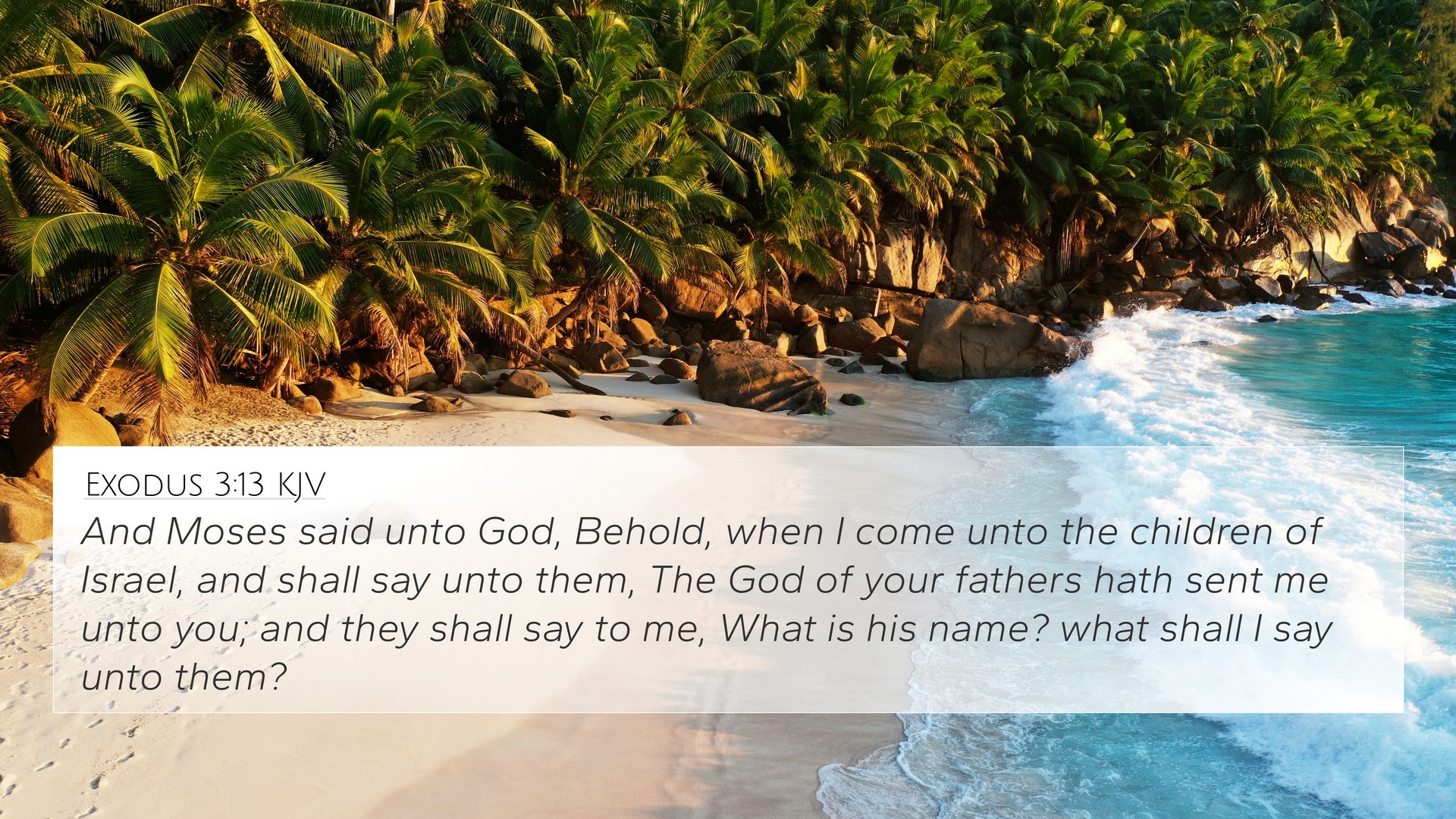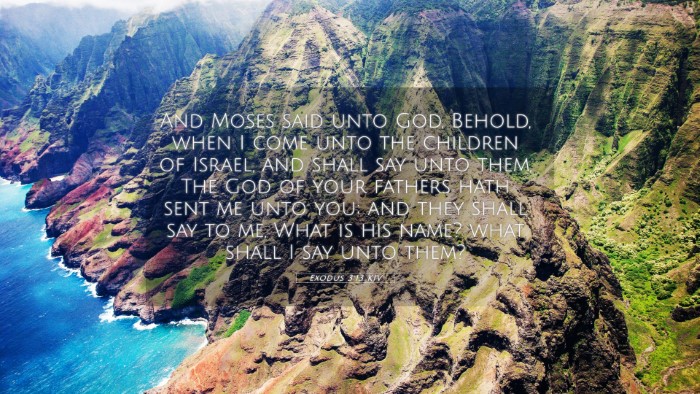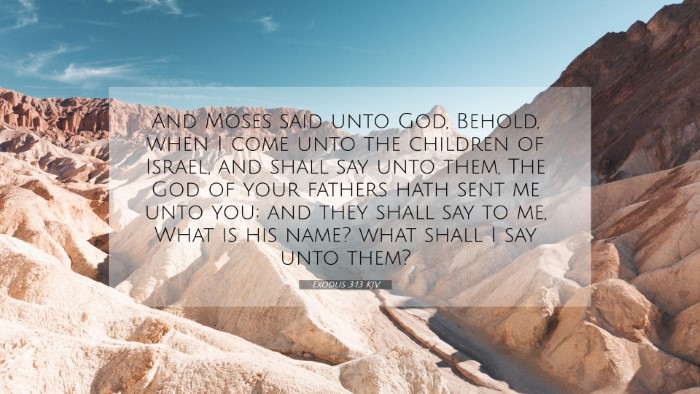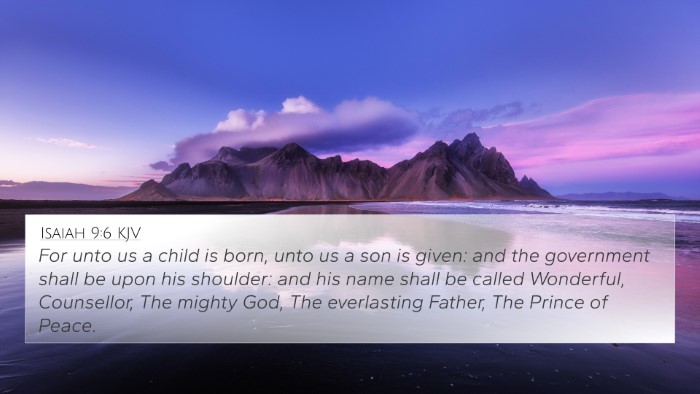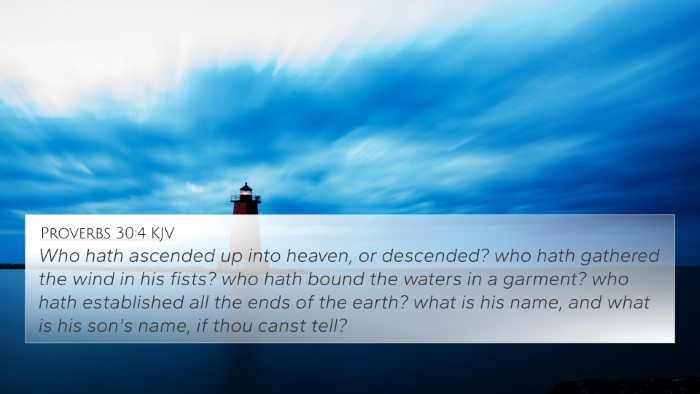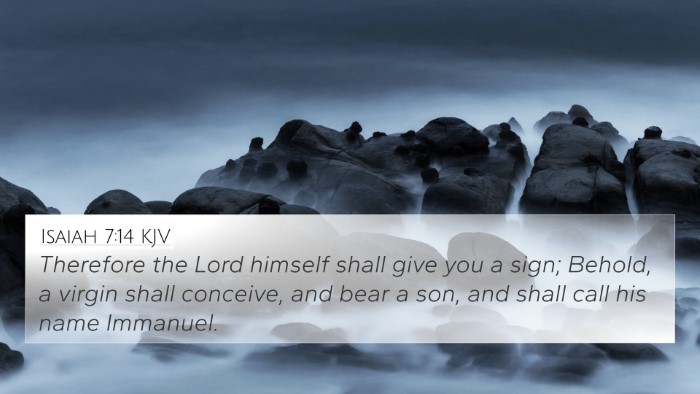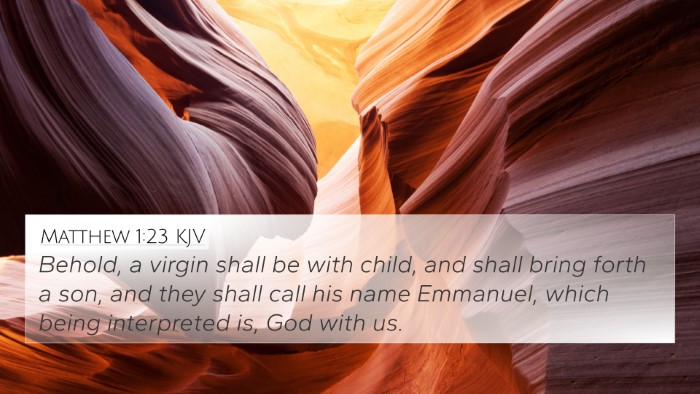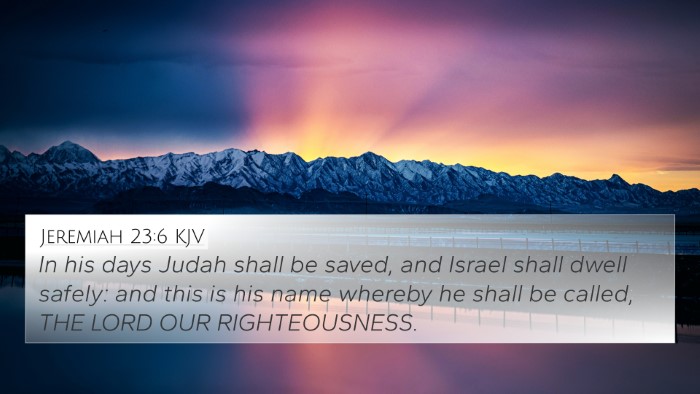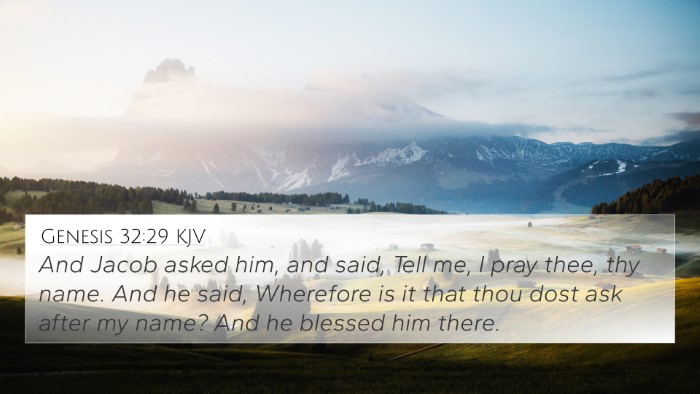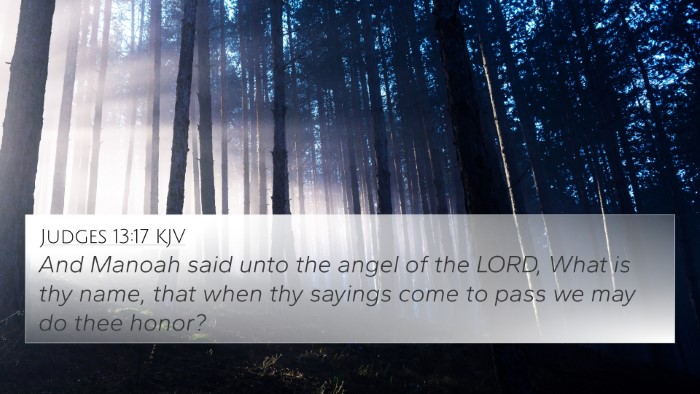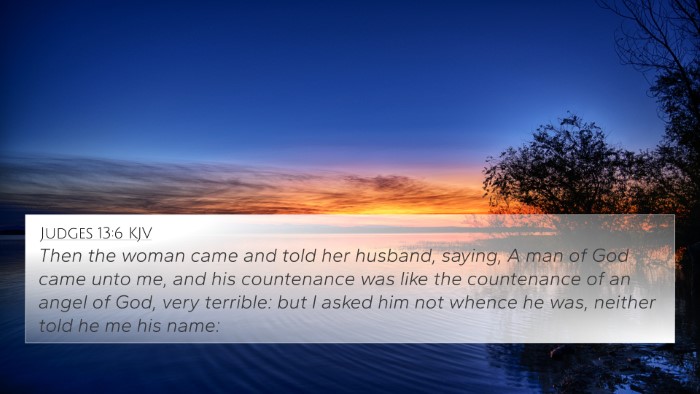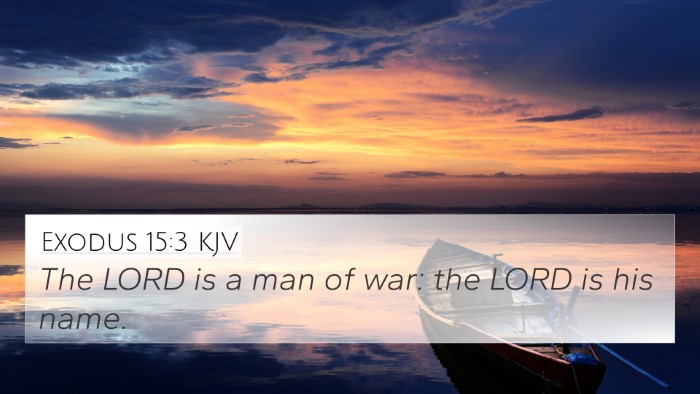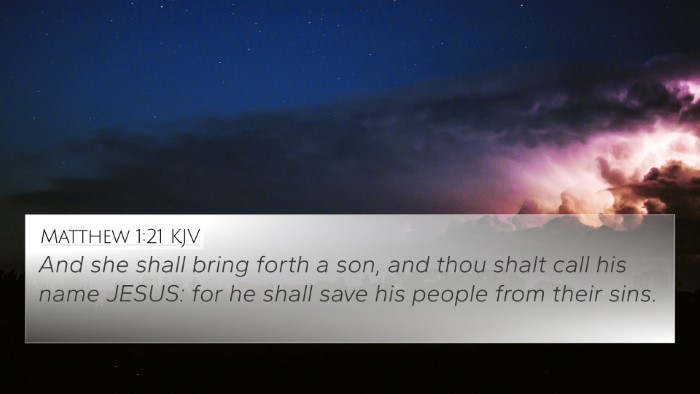Meaning and Interpretation of Exodus 3:13
Exodus 3:13 is a pivotal verse in the Bible where Moses encounters God at the burning bush, and it reveals profound truths about God's nature and identity. The verse states: "And Moses said to God, 'If I come to the people of Israel and say to them, "The God of your fathers has sent me to you," and they ask me, "What is his name?" what shall I say to them?' In this moment of dialogue, several themes emerge that can be explored through comparative Bible verse analysis, thematic Bible verse connections, and linking Bible scriptures.
Context and Background
The context surrounding this verse is crucial for understanding its implications. Moses had fled Egypt after killing an Egyptian and was now tending sheep in Midian. He encountered God, who called him to lead the Israelites out of Egypt. This verse captures Moses's concern about how he would present God to the Israelites, highlighting the importance of God's name and identity in their deliverance.
Insights from Commentaries
Various public domain commentaries offer rich insights into this verse:
- Matthew Henry: He emphasizes the significance of names in Scripture, suggesting that God's name reflects His essence and attributes. By asking for God's name, Moses is seeking reassurance and clarity about the God who is sending him.
- Albert Barnes: Barnes highlights that the name of God is crucial as it conveys authority. He notes that Moses's inquiry is legitimate, given the gravity of the commission he is receiving from God.
- Adam Clarke: Clarke discusses the cultural background, pointing out that in many ancient societies, knowing someone's name was key to understanding their character and power. This reflects Moses's need for a deeper revelation of God's identity.
Theological Implications
The inquiry about God’s name has deeper theological implications that resonate throughout Scripture:
- God's Revelation: The revelation of God's name is foundational for understanding His relationship with humanity. It sets the stage for how He will be revered and worshipped.
- God's Authority: By establishing His name, God assures Moses of the authority with which he will speak to the Israelites, confirming that it is not by his own strength but by God's power.
Bible Verse Cross-References
Exodus 3:13 connects with numerous other verses that deepen its understanding. Below are key cross-references that elucidate its themes further:
- Genesis 17:1: "When Abram was ninety-nine years old the LORD appeared to Abram and said to him, 'I am God Almighty; walk before me, and be blameless.'"
- Exodus 6:2-3: "God spoke to Moses and said to him, 'I am the LORD. I appeared to Abraham, to Isaac, and to Jacob, as God Almighty, but by my name the LORD I did not make myself known to them.'
- Isaiah 42:8: "'I am the LORD; that is my name; I give my glory to no other, nor my praise to idols.'
- John 8:58: "Jesus said to them, 'Truly, truly, I say to you, before Abraham was, I am.'
- Acts 4:12: "And there is salvation in no one else, for there is no other name under heaven given among men by which we must be saved."
- Psalms 83:18: "That people may know that you, who alone are named the LORD, are the Most High over all the earth."
- Revelation 1:8: "'I am the Alpha and the Omega,' says the Lord God, 'who is and who was and who is to come, the Almighty.'
Connecting Themes Across Scriptures
This verse not only provides a singular insight into God's identity but also opens up an inter-biblical dialogue that reveals how the narrative of God's name unfolds across the Scriptures. When considering the connections between Bible verses, one can see:
- **Thematic Development of God's Name:** How names are used in the context of divine revelation and authority.
- **Fulfillment in Christ:** The ultimate revelation of God’s name in Jesus Christ reinforces the significance of the inquiry in Exodus 3:13.
- **Covenantal Context:** The use of God’s name ties into the covenant relationships He establishes, seen in various Old Testament promises and their New Testament realizations.
Tools for Bible Cross-Referencing
Understanding Exodus 3:13 is enhanced by utilizing various tools for Bible cross-referencing. Some recommended tools include:
- Bible Concordance: A comprehensive index that helps in locating verses based on keywords, such as 'name' or 'God.'
- Bible Cross-Reference Guide: Resources that outline connections between related verses throughout the Biblical narrative.
- Bible Study Methods: Methods that emphasize thematic studies, helping readers to delve into the significance of divine names.
Conclusion
Exodus 3:13 serves as a gateway to profound theological reflections on God's identity and His promises. By cross-referencing this verse with related scripture, individuals can glean a wealth of understanding about God's nature, His relationship with humanity, and how these elements intertwine within the broader biblical narrative. Exploring these connections not only enriches spiritual understanding but also enhances personal faith applications.
